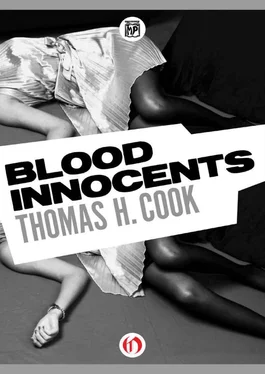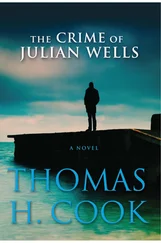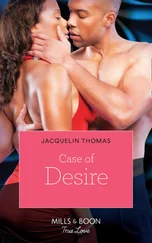Thomas Cook - Blood Innocents
Здесь есть возможность читать онлайн «Thomas Cook - Blood Innocents» весь текст электронной книги совершенно бесплатно (целиком полную версию без сокращений). В некоторых случаях можно слушать аудио, скачать через торрент в формате fb2 и присутствует краткое содержание. Жанр: Триллер, на английском языке. Описание произведения, (предисловие) а так же отзывы посетителей доступны на портале библиотеки ЛибКат.
- Название:Blood Innocents
- Автор:
- Жанр:
- Год:неизвестен
- ISBN:нет данных
- Рейтинг книги:5 / 5. Голосов: 1
-
Избранное:Добавить в избранное
- Отзывы:
-
Ваша оценка:
- 100
- 1
- 2
- 3
- 4
- 5
Blood Innocents: краткое содержание, описание и аннотация
Предлагаем к чтению аннотацию, описание, краткое содержание или предисловие (зависит от того, что написал сам автор книги «Blood Innocents»). Если вы не нашли необходимую информацию о книге — напишите в комментариях, мы постараемся отыскать её.
Blood Innocents — читать онлайн бесплатно полную книгу (весь текст) целиком
Ниже представлен текст книги, разбитый по страницам. Система сохранения места последней прочитанной страницы, позволяет с удобством читать онлайн бесплатно книгу «Blood Innocents», без необходимости каждый раз заново искать на чём Вы остановились. Поставьте закладку, и сможете в любой момент перейти на страницу, на которой закончили чтение.
Интервал:
Закладка:
Thomas H. Cook
Blood Innocents
At the beginning of everything there is first of all refusal.
- Jean-Paul Sartre1
MONDAY
Watching it from his window, Reardon saw the city only as an immense patchwork of random sound and directionless movement. It had not always been like this for him. In his youth he had walked the streets in his dark-blue uniform with shining badge as a protector of a wild and famous city. He had not forgotten that what he felt then was a rapture so heedless, asking so little, that even the loss and butchery he saw in the course of his duties could not permanently overwhelm it. He had been a serious protector, one who must love what he protects.
He lit a cigarette. The flame gave off a pale, orange aurora in the morning fog. He watched the match burn down almost to his fingertips, then quickly waved it out. He smoked wearily, pleasurelessly. This would be his last cigarette, and because of that he could not savor it. In his mid-fifties now, he had come to fear the slow, strangulating death of lung cancer.
It was cancer that had finally killed his wife, Millie, slowly devouring her bowels inch by inch. Even now, two weeks after her funeral, he sometimes came home to the apartment expecting to find her there and was forced all over again to relive his loss of her. At the funeral he had sat at the front of the church staring at the roses that had adorned her closed coffin. He had ordered her coffin closed because he believed that death was a kind of final privacy, upon which living eyes should not be allowed to intrude. His son, Timothy, had sat beside him, along with his son’s wife, Abbey, and their children. Timothy had kept his hands folded ritually in his lap, his face immobile, but with his eyes darting about as if his mind were still busily examining the law cases in his office. And Reardon had noticed that only when his son looked back over his shoulder and saw the head of his law firm enter the church did his face suddenly change its expression to one of mourning.
Now, standing in his living room, Reardon turned from the window and glimpsed himself in the full-length mirror on the opposite side of the room. He had become much more conscious of his body recently, conscious that it was slowly taking him through that process of things that pass away. He was still powerfully built for a man of ordinary height and weight, but now, staring at himself across the room, he could detect the first curving downward of his shoulders and buckling of his knees.
Quickly he turned from the mirror to the window. Below he could hear the traffic cutting through the wet streets like long knives slicing into melons. He remembered a psychopath he had arrested almost twenty years before. When asked why he had butchered his victim so wantonly the man had replied he was looking for seeds. “You know, like in a watermelon.”
Reardon tapped his cigarette and watched the ashes tumble toward the street. He estimated the distance from his window to the street at about eighty feet. He had heard of infants surviving falls of even more than that distance, but never an adult. Babies survived because they relaxed all the way down. But adult human beings, terrified beyond comprehension, stiffened every muscle, locked every joint, stretched every tendon taut and ground their bones like sticks of chalk into the sidewalk.
Slowly his eyes followed upward the line of windows in the building facing him. He had answered many calls there, mostly inconsequential: family bickerings, lovers’ quarrels, evictions, disorderly conduct complaints, general nuisance behavior; only once a murder. Finally his field of vision passed the highest landing and over the roof, where, in the distance, half blurred by the early morning fog, a sign blinked its certain message that Jesus Saves.
“Got a freako for you this morning, Reardon,” Sergeant Smith said from behind his large wooden desk as Reardon entered the precinct house. For Smith, human crime was divided into three categories: ordinary criminal acts – such as theft, simple battery, rape and common murder – for which no specific designation was required; “bloodies,” which were particularly gruesome murders or assaults; and “freakos,” crimes so bizarre that Smith could not comprehend their source.
“What is it?” Reardon asked.
“Piccolini will tell you,” Smith said teasingly.
“You can tell me.”
“No, let Piccolini. It’s a little different, you know what I mean?” Smith winked at Reardon. “It’s something they think only Detective Reardon can handle. Something they need an expert for.” He motioned toward Piccolini’s office door with a grand, mocking gesture. “You may enter, sir.”
Piccolini sat at a gray metal desk. Each wall was lined with file cabinets and the window behind Piccolini featured a view of the rear alley. Piccolini’s desk was covered with files, and he was furiously applying himself to a stack of papers in front of him when Reardon entered.
“Smith says you want to see me,” Reardon said.
Piccolini did not look up. “Sit,” he said.
Piccolini did everything with the single-minded purpose and intensity of a worker ant. Details were his passion. He believed that if a social security number was recorded incorrectly it could lead to general disorder. For Piccolini great upheavals were nothing more than the accumulated consequence of millions of smart mistakes.
Reardon’s eyes roamed Piccolini’s office. It was a habit of his, looking for evidence even when there was no crime. A small metal bookshelf stood in a corner opposite the door. The books were arranged alphabetically by title. There were codes of conduct, commission reports, manuals of procedure and handbooks on administration: the rules of the game. Places were marked in some of them, Miranda warning cards used as bookmarkers.
“Want coffee?” Piccolini asked without looking up.
“No,” Reardon said.
“Be through in a minute. Just relax. I have to get all this out every Monday morning.”
Reardon did not know very much about Piccolini even though he had known him for years. He knew he was a devout Catholic who believed in an absolute fate, his own and everybody else’s. This, Reardon believed, explained his generally acknowledged fearlessness. Otherwise Piccolini was an enigma. Reardon knew that he was married, but not whether he was happy in that marriage. He knew that he had children, but did not know if they loved their father. He knew that Piccolini drove an expensive car, but he did not know if it was paid for.
Piccolini finished signing the last paper and looked up at Reardon. “I suppose Smith told you we have a bloody for you this morning.”
“He called it a freako,” Reardon said.
“Where does he get those classifications?”
“I don’t know.”
“They always give me the creeps.”
Reardon said nothing.
Piccolini leaned back in his swivel chair and put his hands behind his head. “Have you ever been to the Children’s Zoo?”
“Sure,” Reardon said.
“Well, you remember a few years back when Wallace Van Allen donated two fallow deer to the zoo? It was in all the papers. It was a big event, you know? On television and all that.”
“I remember it.”
“Well, we have an embarrassing situation here,” Piccolini said. “It has to do with those same deer.”
“What about them?”
Piccolini cleared his throat and shifted slightly in his seat. From the earliest days of their association together Reardon had noticed that Piccolini was seldom unnerved by seeing the results of a crime or by the brutal details of investigating it, but that he did not like to describe a crime to others. Rendering it into language removed it from that remote spot it occupied in his mind. It was only in describing a crime that Piccolini seemed compelled by its reality.
Читать дальшеИнтервал:
Закладка:
Похожие книги на «Blood Innocents»
Представляем Вашему вниманию похожие книги на «Blood Innocents» списком для выбора. Мы отобрали схожую по названию и смыслу литературу в надежде предоставить читателям больше вариантов отыскать новые, интересные, ещё непрочитанные произведения.
Обсуждение, отзывы о книге «Blood Innocents» и просто собственные мнения читателей. Оставьте ваши комментарии, напишите, что Вы думаете о произведении, его смысле или главных героях. Укажите что конкретно понравилось, а что нет, и почему Вы так считаете.












